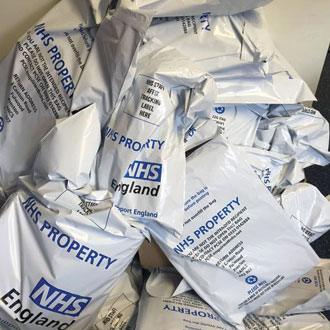What has happened to primary care support services?

What are primary care support services?
They are responsible for making payments to practices, checking patient lists, transferring patient records following new patient registrations and supplying medical equipment.
What has happened to these support services?
In March 2014, NHS England announced it would save £40m of the £100m budget for primary care support services by cutting services, including some courier services and contacting patients to inform them when a practice closes.
In July 2014, it said it was outsourcing support services to a single provider, which would replace its local offices.
Who won the contract?
In June 2015, Capita was successful with a bid that proposed to run support services through three national hubs – one for screening services, one for payment services, and one for medical records, registrations and performers list services.
When did the problems for practices begin?
There were major problems with payment services even before NHS England announced there would be cuts, with practices routinely facing delayed payments.
However, after NHS England began winding down its operations, further problems arose with the transition. NHS Birmingham CrossCity CCG – the biggest in England – warned practices were receiving ‘misleading financial statements’ and seeing IT projects potentially fail as NHS England phased out local offices. In the Thames Valley area, 30 trainees were mistakenly taken off the performers list due to primary care support services failing to file the relevant documentation.
What happened when Capita took over responsibility?
Capita began taking over support services at the start of 2016. By April, Pulse revealed that practices were running low on FP10 forms and blood vials, and there were reports of staff spending 30 minutes on the phone to Capita support services due to problems with the online portal used to order stock.
Capita tells Pulse it has temporarily ‘paused’ collection of patient records, leaving practices to stockpile them while they wait. Pulse has also revealed that the transfer of patient records has been delayed and there is evidence some have been misdelivered.
Meanwhile, practices have also reported missing payments for enhanced services and seniority.
What has the reaction been?
In May, the GPC sent a letter to NHS England demanding practices be compensated for the ‘systematic failure’ of support services. NHS England tells Pulse it vows to hold Capita ‘to account’ for disruption.
Capita has now brought in measures to ensure there is at least one collection a week from practices, and put more workers on its helplines.
What is happening with patient records?
The problems with the transport of patient records come as Capita is piloting a new secure collection service that will allow practices to track records online.
The pilot of this new secure collection service in West Yorkshire has so far received no complaints about records going missing, although the process may have significant workload implications. It requires practices to bag hard copies of patient records individually and match them to a printed barcode when the patient transfers to a new practice. Practices then have to do the online tracking of the delivery themselves.
Janet Hallam, practice manager at The Student Health Centre in Huddersfield, says her university practice has boycotted the scheme. She says: ‘Previously we would just have handed the sealed box of records to the courier, but now we are expected to match each set of notes up with the label and put it into a special delivery envelope and then add the label to the envelope, sealing it.’









